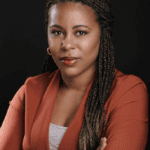
[Editor's Note: Recently, we celebrated the PRNEWS Platinum Awards in New York. Afterward, we held a virtual roundtable with three honorees: Amity Paye, senior director of communications, Color of Change (PR Professional of the Year/nonprofit); Cameron Potts, CCO, Deluxe Corporation (PR Professional of the Year/corporation); and Jee Nah Walker, EVP, Kaplow (PR Professional of the Year/agency).
The discussion highlights:
- why young PR pros should work on patience and interpersonal skills
- that PR counsels perspective when companies want to take stands on myriad issues and
- how media relations has changed owing to a lack of trust in the press
The conversation was edited for length and clarity.]
PRNEWS: What changes have you seen in PR during the last several years?

Amity Paye: There's a lot more deep narrative work that goes into PR. [For example, you] name bad actors more explicitly, [use] active versus passive tense…[and] are more concise, but also use language that audiences really want to hear….
Cameron Potts: PR and communication is setting policy for companies now...especially during the pandemic, when things shut down. [Since PR] has the pulse of...the employee and client bases...we were asked about responding to situations, not just from a communication standpoint, but what policies mean for the company….
Jee Nah Walker: The biggest shift is industry values....
Now the work we do is...much more about mission and purpose. So, how are we putting across…what the company's mission and purpose are? And how is communication...articulating how brands are building something for consumers as a society?
The value of what we do has deepened in many ways.
Paye: I couldn't agree with you more…Communication is often the first thing that people think of. Like, How do we say the right thing in the moment? How do we respond?
The other piece is communication ends up leading action within companies a lot now....
When you start crafting communication around an issue, it leads to all these next steps…. Companies [that] said #BlackLivesMatter, in 2020, worked on messaging and then they had to do all the follow-through…
Communication is leading DEI work in a lot of ways. It's leading social impact work in some cases. We are the first people to actually write and [make a statement] with a company.

Potts: Everybody [used to think] that they could do [communication]...the shift [is they realize] no, they can't…[We] are professionals who know what we're doing...
PRNEWS: What skills would you advise someone interested in communication consider, outside the standard curriculum?
Paye: In my work, organizing is really important…knowing how to talk to people, just having a conversation and gathering someone's story…thinking through the steps to get from where you are now to the new change you're trying to reach....
Potts: Two things. One is interpersonal skills...The second is understanding how to get information from your sources…
We have to be a jack-of-all-trades to take information and disseminate it to large audiences. The generation coming out of college needs to have the patience to gather information and...share it…to truly understand an issue...and make it so that more people can understand it.

Walker: I couldn't agree more…when you think of anyone who is a natural communicator, they connect with people easily, in person, over screen, wherever they are.
The other thing is research, which connects to Cameron’s point about patience.
We're working with so many clients...and much of what we do is seeped in insights and research. So, we have to really look at our competitors…and understand, What are they doing?...How did they do it? What did they say? What did they do next? How are they held accountable for it? And then have all that inform strategies we recommend. And that's hard work and takes patience….
PRNEWS: Going off that, how do you evaluate whether to jump on the latest trend?
Walker: We have to always assess what the goal is. Is this a place that our brand or client should be? Does it present a new target that we're trying to reach?
So, it's always about our clients' most pressing business priorities…It has to be authentic; there has to be an audience gain, and it also has to align with the brand’s values.
Potts: We have a long sales cycle…so we tend not to go with new technology, because no one's buying anything from us off TikTok. But we make sure that we're focused on the right tools and metrics to make sure that we're reaching our audience. And we take a lot of leads from our salespeople, who are speaking with clients daily.
Paye: Jee Nah, you mentioned research being an important skill for young communicators. And it is the way that you should decide if you are going to do something new.
My staff comes to me all the time with ideas…and I say, ‘We can try that, but we're...going to review the analytics...see if our message actually landed.’ You have to have a grounding in research and build out that skill as a team.
The same goes for [social and political issues]...so often companies want to respond to everything...it's like rapid response every day….
We have conversations around presence versus power...you can respond to everything and have a presence...but that doesn't mean you're powerful or...impacting that issue.
Potts: I love that. We've got 6,000 employees. And sometimes our employees want us to respond on everything and you just can't. [If you do,] you're diluting your message...
PRNEWS: Do your organizations use frameworks that help decide when to take a stand on a political or social issue?
Potts: We don't...that's something we're working on.
We're based in Minneapolis. After the George Floyd murder, we leaned on our [employee resource groups]...to help us determine what our response was going to be. We still rely on them.
Walker: I agree, Cameron…we always look at, Does the issue naturally intersect with our company values? Is this something that could potentially impact our employees?
Paye: This sort of power over presence thing for us is really around follow-through...A great example of this is in 2020. Everyone put up their black squares and #BlackLivesMatter statements. And now they're really getting hit pretty hard in the press for not following through.
For us, both for our work as Color of Change, but also in the consulting that we do...we're really saying, 'If something happens in Ukraine, can you follow through? Is there an action that you're going to actually be able to take?'
And if the answer is no, then [the companies we advise should not] say anything, because they don't have power around that issue.
It’s the same for Color of Change. If something happens to Black people, we don't respond if we are not able to take an action...this does not make my staff happy....but we try to hold fast to that rule.
We have thoughts on every issue under the Sun. But we also do a lot of work with community organizations. And that's been a tension. Do we say what we think? Or do we take the time and maybe [issue a statement] an hour or two later [after connecting] with the people who are directly impacted and ask them what they want us to say?
Walker: The expectation from media has changed, too, over the past few years…We weren't seeing media hold companies accountable five-plus years ago.
PRNEWS: Let's talk about the loss of trust in media. Has it changed how you approach media relations?
Paye: We have started relying on influencers, micro-influencers particularly, on social media and in communities to deliver messages, rather than a New York Times story.
Potts: It's almost all generalists in media today....Unless it's a trade publication, [we can't] do a deeper dive into what we're trying to talk about. And so everything just sort of skims the surface.
That becomes a challenge because people are changing beats all the time, or they're moving to a new opportunity, or they just have 10 different beats that they're covering…Those long-term relationships are not there anymore.
Walker: We've had to shift how we put our executives and our leadership in front of media…Corporate-speak is just not allowed...
So, we counsel our clients about how to show up in front of media and consumers.
[We urge that they show] more humanity and authenticity…Yes, you want to report on your latest earnings, but how are you connecting to the average person? You want to make sure that the folks who are representing companies and brands are showing their humanity and are able to connect.
